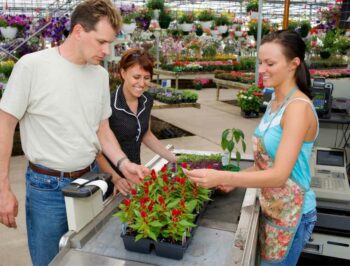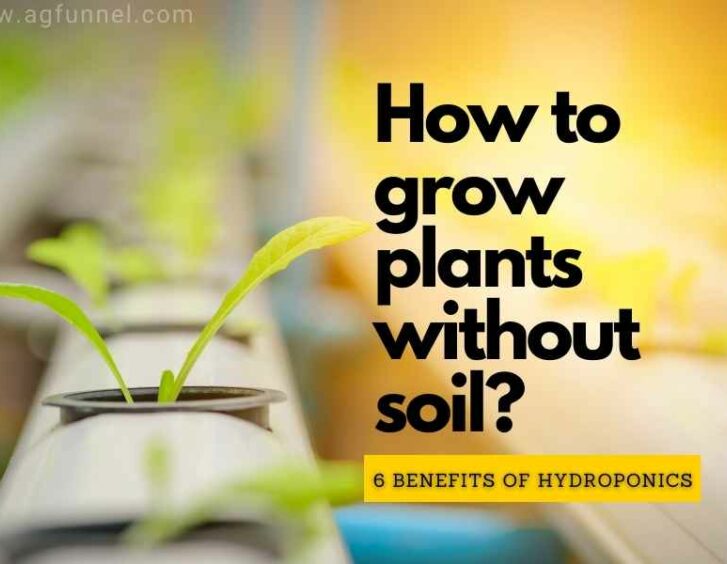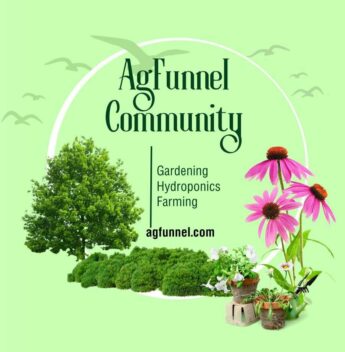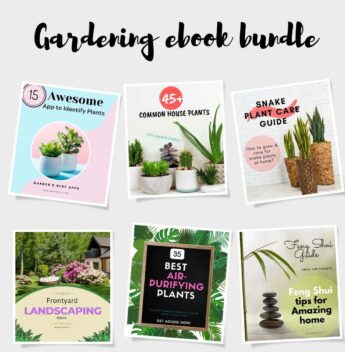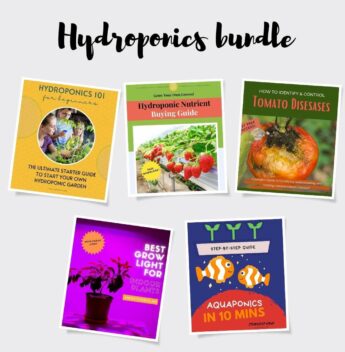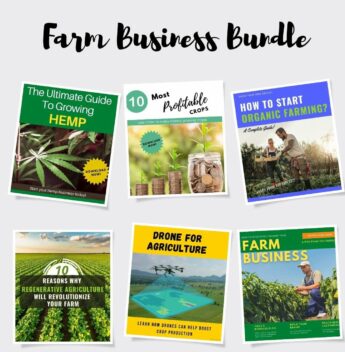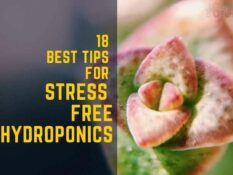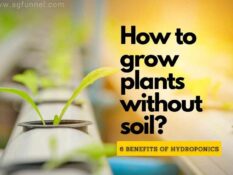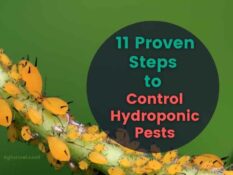Indoor gardening without soil, also known as 'Hydroponics,' is a technique for growing plants without soil. This blog post will discuss how to do indoor gardening without soil and why it may be your next big thing!
What is Indoor Gardening Without Soil?
Indoor gardening without soil, also known as 'Hydroponics,' is a technique for growing plants without soil.
It uses water mixed with nutrients to grow plants rather than soil. The plant's roots are submerged in nutrient-rich solutions, which provide all necessary nutrients (such as minerals) for growth and sustenance.
This technique allows you to grow almost anything if you provide the right environment and conditions.
.jpg)
Plants grown in hydroponics often grow faster than those grown using the traditional dirt-based approach. And these plants are often more nutritious! This is because, in hydroponics, the plants get better nutrients and oxygen, which are often lacking in soil.
It's especially beneficial for those who don't possess a large land patch and only have minimal space in their homes.
This blog post will discuss how to do indoor gardening without soil and why it may be your next big thing!
Getting Started With Indoor Gardening Without Soil
- To start growing plants without soil, you will need a container to hold the water and nutrient solution, also known as a hydroponic reservoir. For this, you can use any pot or bucket that is large enough for your plants.
- The next step would be to add some fertilizer (aka hydroponic nutrient) to the hydroponic reservoir and fill it with clean distilled water.
- The final step is to adjust the pH of the mixture to ~5.5 to 6.5 using a pH meter and place your plants into the container.
- The roots of the plants will then be submerged in this nutrient-rich solution, which provides all the necessary nutrients for growth.
- You can use the hydroponic substrate to support your plants in hydroponics.
- Finally, you should provide the environment, such as temperature, relative humidity, etc., appropriate for your chosen crop's growth.
Benefits of Indoor Gardening Without Soil
There are several benefits of indoor gardening without soil over soil-based gardens.
.jpg)
- Faster growth: One major benefit is that plants grown with this technique grow much faster than those using the traditional dirt approach, which means you can get more produce in less time!
- Higher nutritional content and taste better: These plants have higher nutritional content and taste better (due to a lack of chemicals). So they are perfect for anyone who wants their family's diet improved without sacrificing flavor or nutritional value.
- It can be simple and easy: Another great thing about hydroponically growing your vegetables indoors is that you don't need any special equipment like greenhouses. It's easy enough that anyone new to gardening can do it - just some containers filled up with hydroponic substrates such as coco-peat, stone wool, or perlite, along with some hydroponic nutrient solution nourishes your plant as you watch them grow healthy and vigorously at you own home.
- Less messy: If you're looking for a more convenient and non-messy way to grow your plants, hydroponics may be the answer!
- Growth all year round: You can have fresh vegetables indoors without worrying about what season it is outside!
- Saves space: Planting with soil requires more space. If you're a small-space dweller, you'll be happy to know that gardening indoors without soil is possible through hydroponics.
.jpg)
- Saves water: Contrary to what you might think, hydroponics saves more water than traditional gardening. Plants in hydroponics don't need watering once the system has been set up properly.
- Better weed management: When using hydroponic gardening, you won't have to worry about weeding! You can focus on what's important: ensuring that plants receive all their nutrients and water.
- Faster plant growth rates and higher yields per square foot than soil gardens because plants can receive more nutrients in a shorter amount of time.
- A hydroponic system allows you to optimize the water and fertilizer based on your plant's needs. Plants must consume water and fertilizer to stay alive and grow properly. This may, however, be lacking in most soil.
- Hydroponics allows you to optimize nutrients precisely so that your harvests will be more consistent and plentiful.
You'll never miss out on that juicy tomato or crisp cucumber again, as you can grow any vegetable all year round!
How To Do Indoor Gardening Without Soil?
Hydroponics is made possible with a powerful substance referred to as a nutrient solution. This is water enriched with minerals and other nutrients to help plants grow better than they would in soil.
In addition, the plants are provided with the perfect environment for optimal growth!
Your plant's roots will be submerged into the nutrient liquid, which provides it with everything necessary - no need for any dirt or sand-type mediums.
This means you'll not only have less work but also have more produce per harvest.
Also, hydroponics is considered much healthier by many experts (due largely thanks to its chemical-free nature). And what's not to love about it?
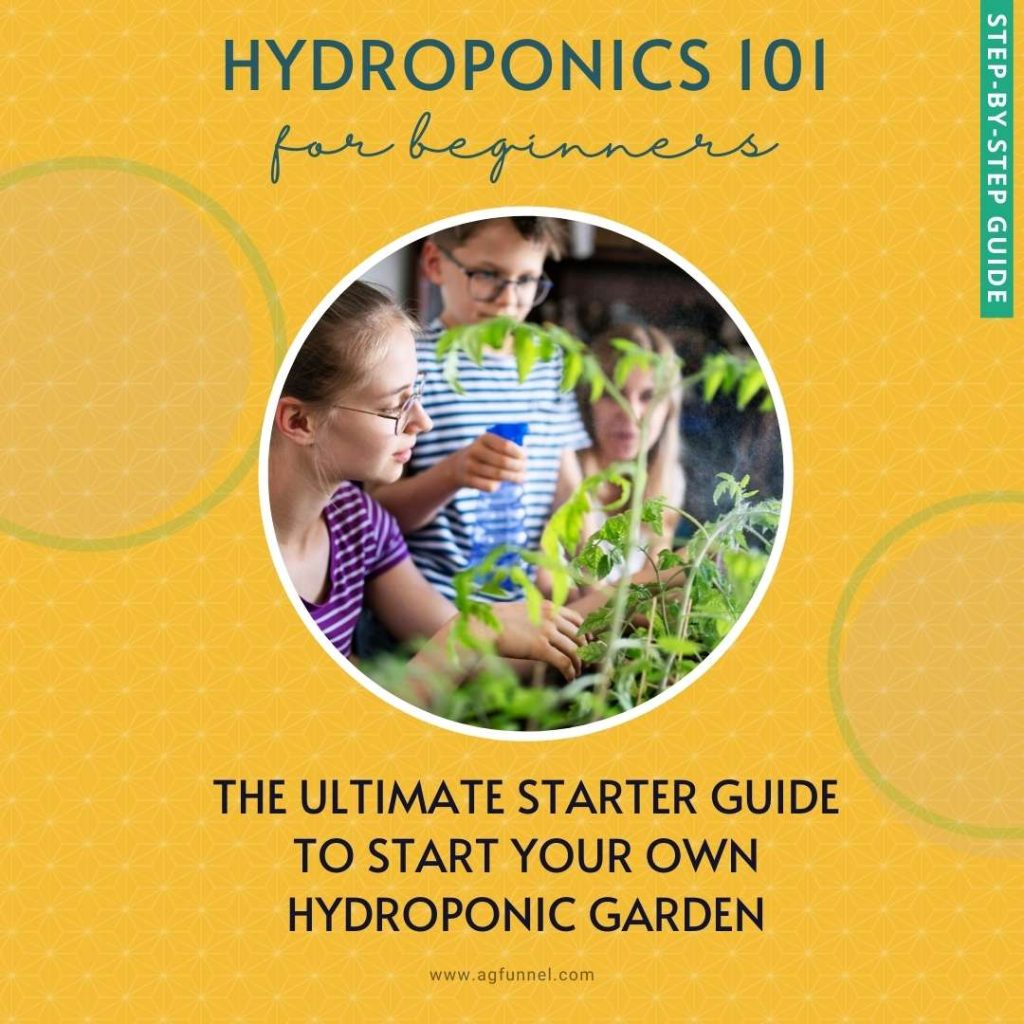
Getting Started In Hydroponics? Download our ultimate starter guide to build your own hydroponic system
What Are The Proper Methods For Gardening Without Soil?
Now that you know how hydroponics works, it's time to learn how to grow plants in water without soil. First things first! Grab yourself some supplies such as:
- Reservoir - The first thing you need to start a hydroponic garden is a container. The size of this will depend largely upon how many plants are in question and what type they may be (vegetables, herbs, etc.). You can use simple pots from home improvement stores with drainage holes; alternatively, plenty is available online if needed!
- Net pots- The net pots for hydroponics are made of high-quality, durable materials in various colors and sizes. These net pots can be used for growing plants in the greenhouse, hydroponic, aquaponic, and much more.
- Growing medium- a substrate or grow media- provides a foundation to support the growing plants. Rock wool, clay aggregate, coco chips, perlite, coco coir, peat moss, lava rock, vermiculite, river rock, etc., are just some materials that can be used as growing mediums in hydroponics.
- Seeds and Cuttings- Hydroponics allows you to grow almost anything provided you give an optimal environment for their growth, including the right temperature, humidity, light, etc.
- Grow Light- The light requirement for hydroponics depends on which crops you choose and which hydroponic system you choose.
- Cleaning - An important aspect of growing vegetables indoors hydroponically is keeping a clean environment. While most gardeners do not need to worry about sterilizing their environment, those growing in hydroponic systems need a good sanitizing solution to kill bacteria or pathogens. The most common sterilization method uses chemicals such as soap and warm water, bleach, hydrogen peroxide, or vinegar.
After you monitor and adjust these key variables, you can discover what your plants need for them to thrive. This will allow you to replicate those conditions for every growth in the future. Read more about how to maintain a hydroponic system.
What pH Is Best For Hydroponics?
pH is important in hydroponics since most plants are sensitive to nutrient pH changes. Although the pH requirement depends on the plants, most prefer pH to be around 6-6.5.
What Is The Best Indoor Hydroponic System?
There are several ways to do hydroponics. This method of indoor gardening without soil depends on the space available and the kind of plants you want to grow. Some of the best indoor hydroponic systems are:
- Kratky Method
- AeroGarden
- The Ebb & Flow system
- Nutrient Film Technique and
- Drip or (Top Drip) Systems
Some of these systems are easy to use for beginners. Others require more time but can produce a higher yield per square foot than traditional gardening methods.
Kratky Method
The Kratky hydroponic method is perfect if you're spending a small amount of money or are just getting into hydroponics.
All you need is a pot, some rocks, a soil substitute, and your plant of choice. It's that simple!
Fill your container with nutrient solution and water till the solution reaches ~3 inches from the top of the container.
Next, put your seedling in the net pot and ensures that the growing roots are constantly in touch with the nutrient solution and that it never dries out.
Ebb and Flow
Ebb and Flow, also known as Flood and Drain method, is one of the most well-known hydroponics systems.
Ebb and Flow have a medium difficulty level for setup because it's versatile but not too expensive to build.
The basic concept behind Ebb and Flow is that plants are placed in grow trays with holes below them to pump nutrient water into the plant's roots from a reservoir.
Water returns to the reservoir from these grow trays once you open the drain.
Nutrient Film Technique (NFT)
Nutrient Film Technique, or NFT for short, is a popular and dynamic hydroponics system.
NFT has a medium difficulty level, and the system needs more space than Ebb & Flow.
In NFT, plants are grown in the channels, such as PVC pipes). Water is constantly pumped into these channels from the reservoir.
There's one unique difference between NFT and Ebb and Flow: In NFT, the roots are constantly being moistened by an ever-flowing 'nutrient film,' unlike in Ebb and Flow, in which the nutrient solution is pumped periodically. Read more about how to build your own nutrient film technique at home.
Aeroponics
Aeroponics is a revolutionary new technique for cultivating plants.
Plant roots are suspended in the air and nourished with nutrient-laden mist.
The roots are provided with periodic puffs of mists from specially designed misters, giving nutrients to the roots.
What Are The Plants That Grow In Water Without Soil?
You can grow any plant in hydroponics provided you give the right nutrients, space, and appropriate environments such as light, temperature, and pH.
Some of the most common plants to grow in hydroponics include lettuce, basil, cucumbers, tomatoes, and peppers. You can grow citrus, apple, and other trees if you are willing and dedicated!
Read more about common problems associated with hydroponics.
.jpg)
How To Manage Pests In Hydroponics?
Now that you know how to grow plants without soil, you must know common hydroponics pests.
Gardening without soil means that pests can't hide in the soil, significantly reducing their chances of survival and spotting them more easily.
Learn more about how to manage pests in hydroponics.
FAQs
Why do people like hydroponic gardening?
People like hydroponic gardening because it is convenient and easy to maintain, it will save time by not having to do weeding, fertilizing, or other labor-intensive gardening activities since most parameters in hydroponic can be timed and automated. With hydroponics, we can grow crops year-round since we can adjust environmental parameters according to plants' needs. We can grow a variety of crops in the same space year-round!
How much electricity is required for hydroponic systems?
The electricity requirement for hydroponics depends on the size of the system, but in general, it can be from 25-320 watts per square meter.
What are nutrient solutions?
A nutrient solution is a solution that contains all the necessary mineral nutrients for plant growth. It usually also includes additional ingredients such as fertilizer, vitamins, and micronutrients or supplements to provide essential sustenance to plants.
Can you grow hydroponics without nutrients?
Nutrient is important for the growth of any plant. Without it, plants can't survive. So you cannot grow hydroponics without nutrients.
How good is hydroponics for a start in apartments and at home?
Hydroponics is great for people who live in apartments or at home, especially since it does not take up a lot of space and does not require constant caring and management efforts as needed in traditional gardening.
What is the difference between aeroponics and hydroponics
Aeroponics and hydroponics are two different methods for growing plants without soil.
-Hydroponics is a technique of growing plants without soil. It relies on liquid nutrients which flow through the plant's roots.
-Aeroponics is also a technique of growing plants without soil, and it relies on nutrient mist sprayed onto hanging roots in an open-air environment (not submerged in water).
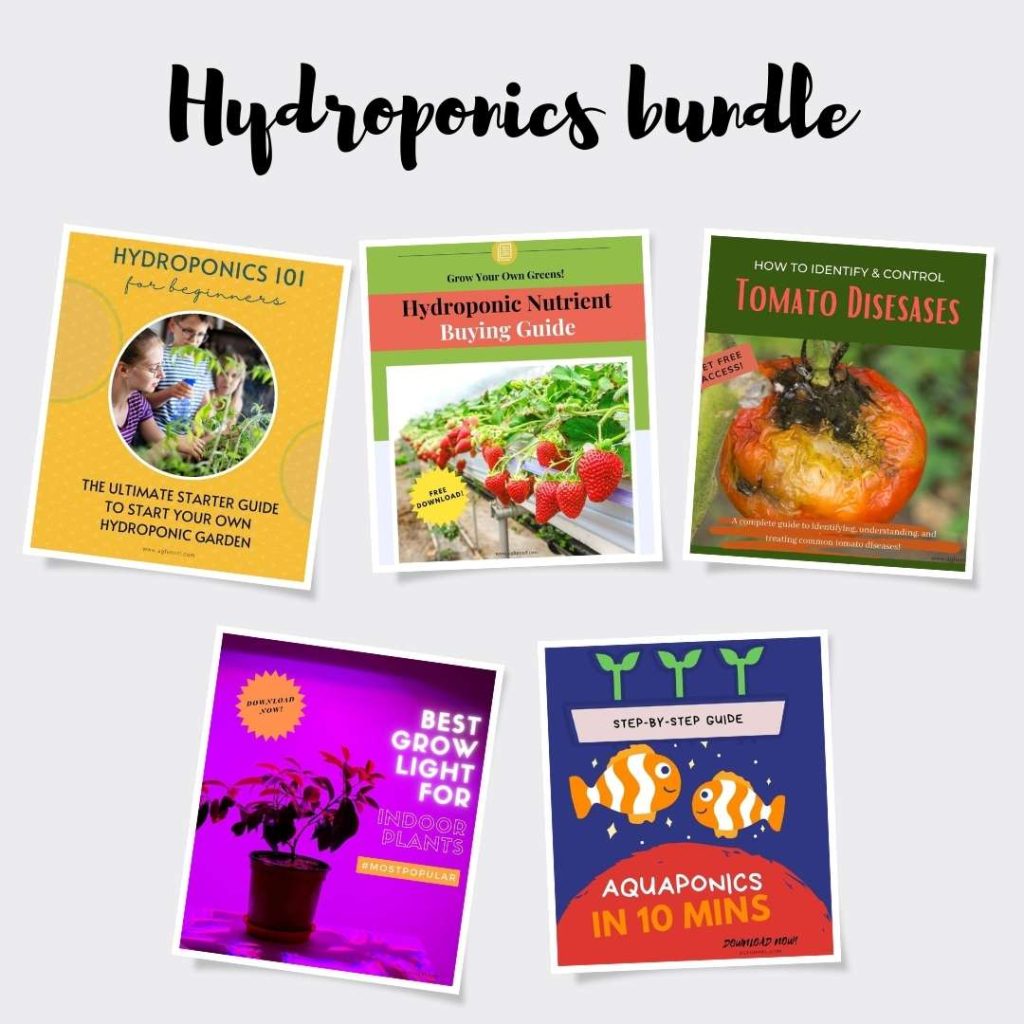
Learn everything about hydroponics, from the basics to advanced techniques.

